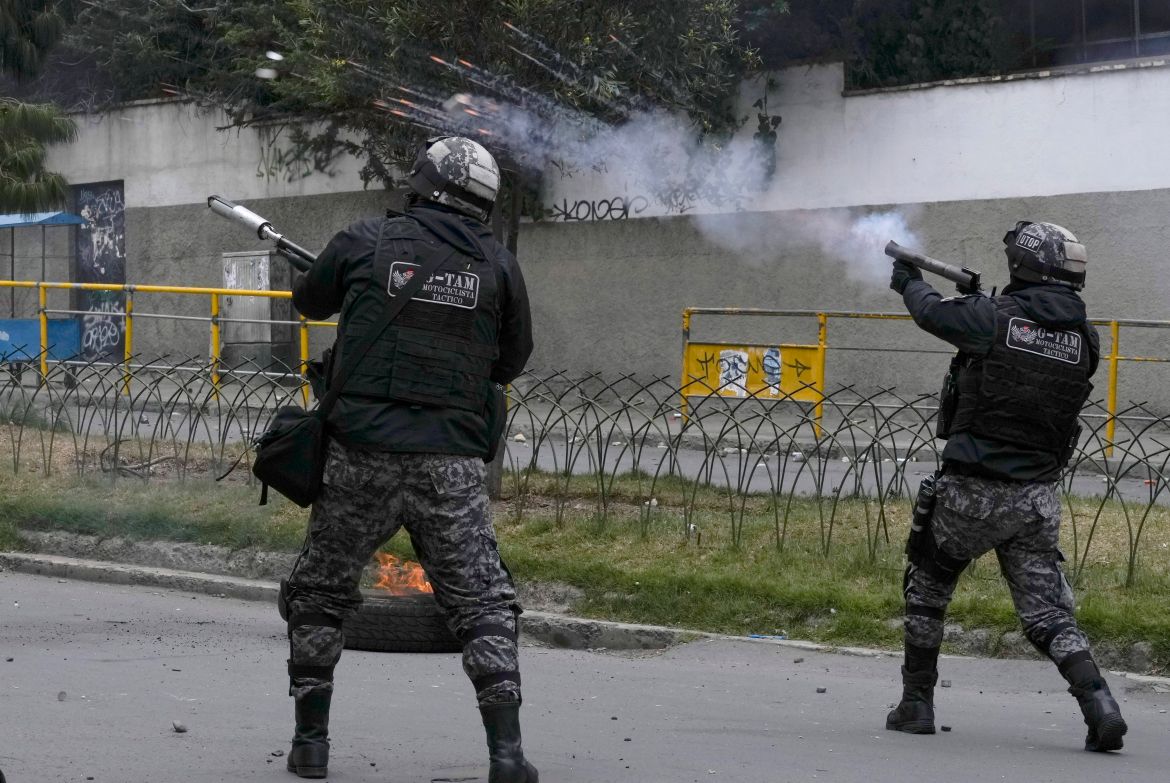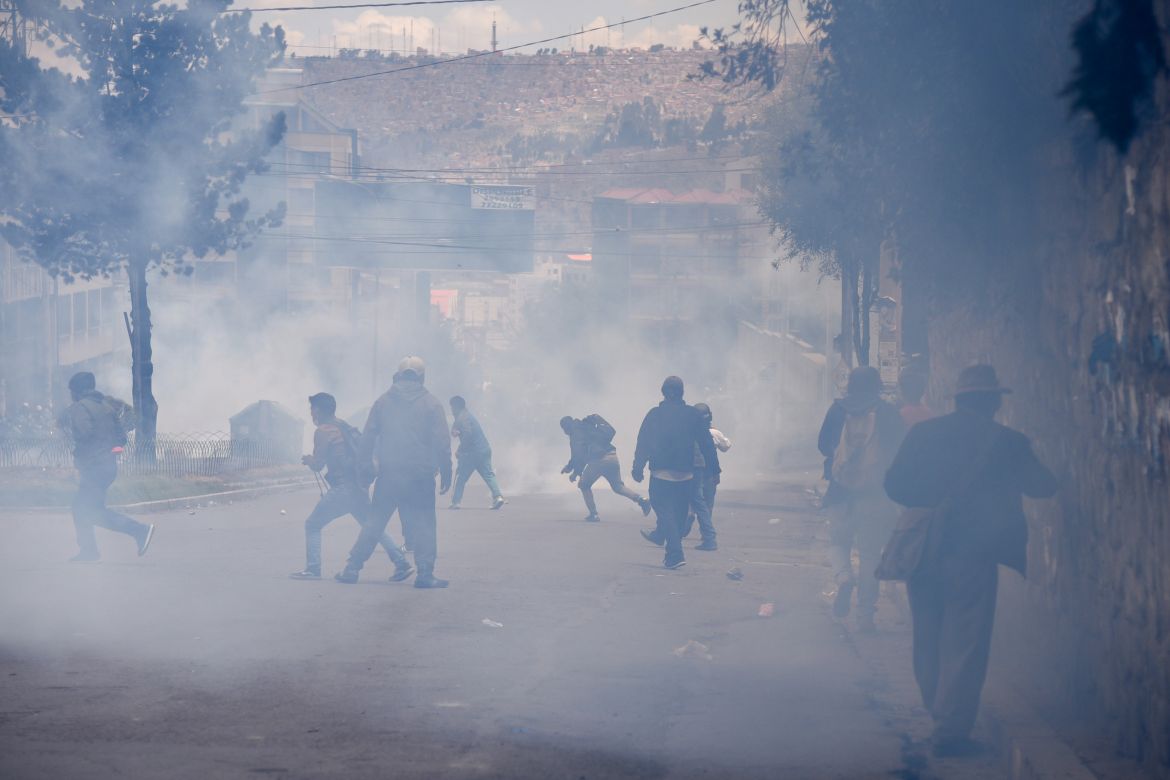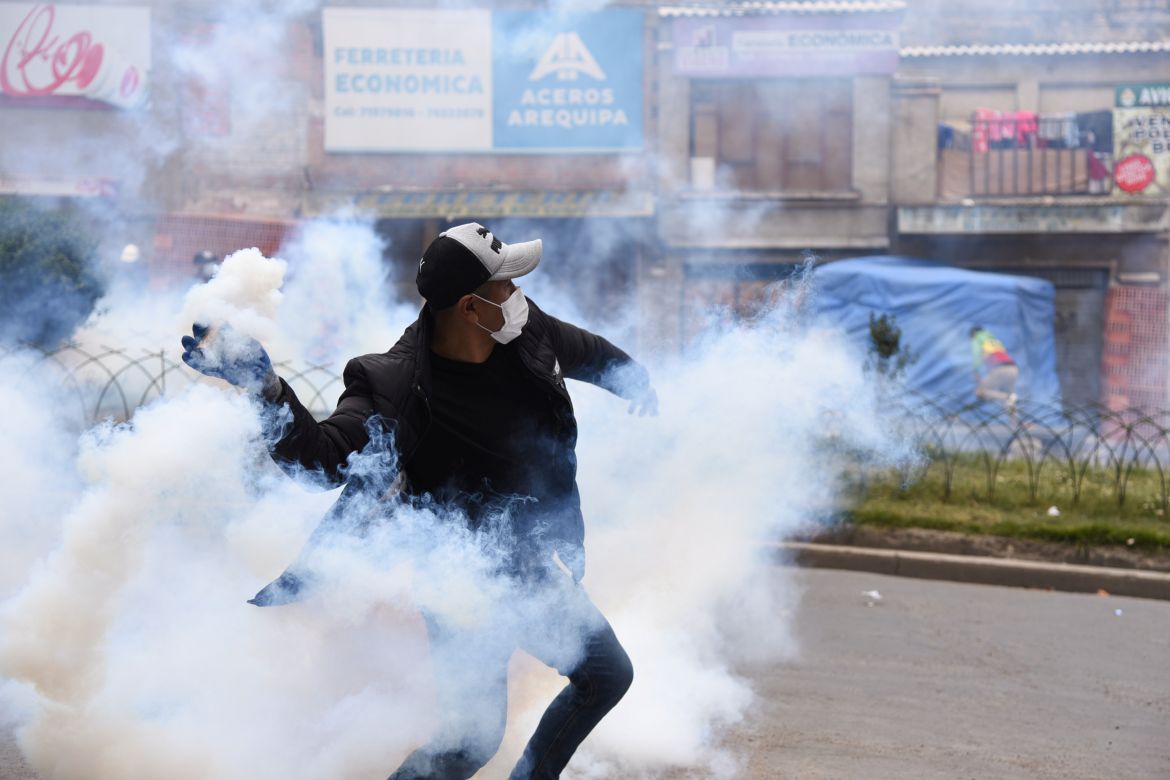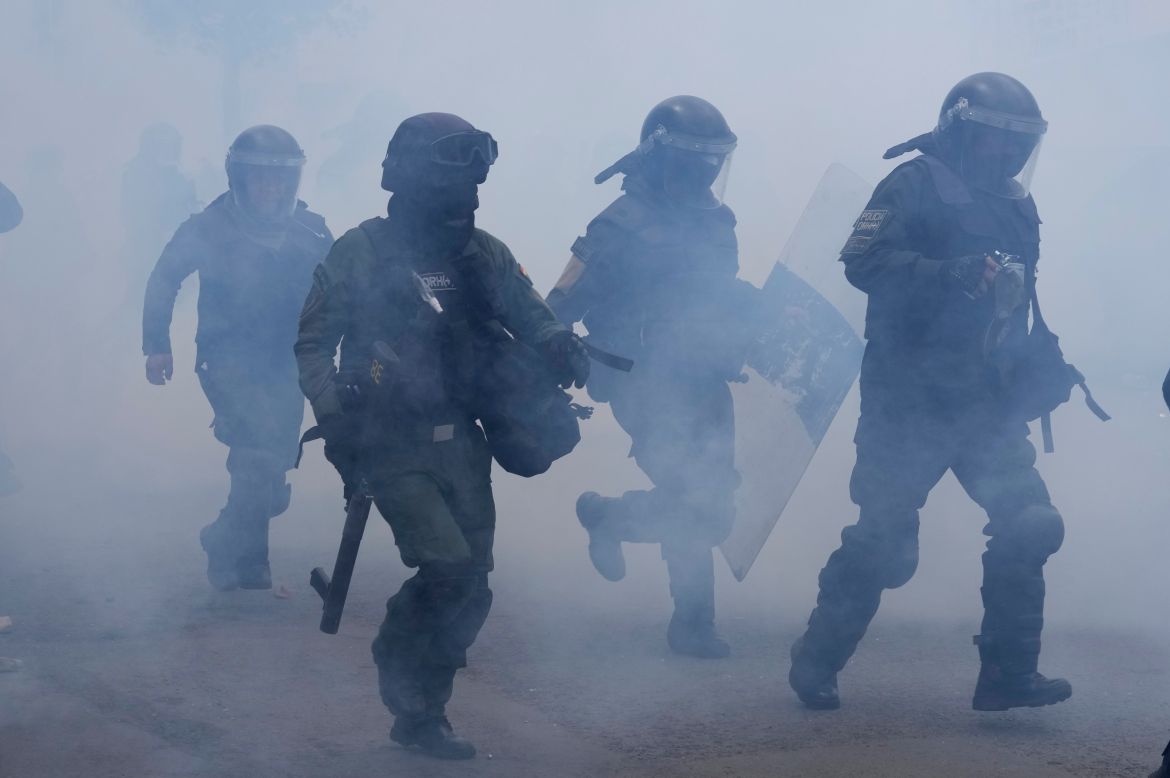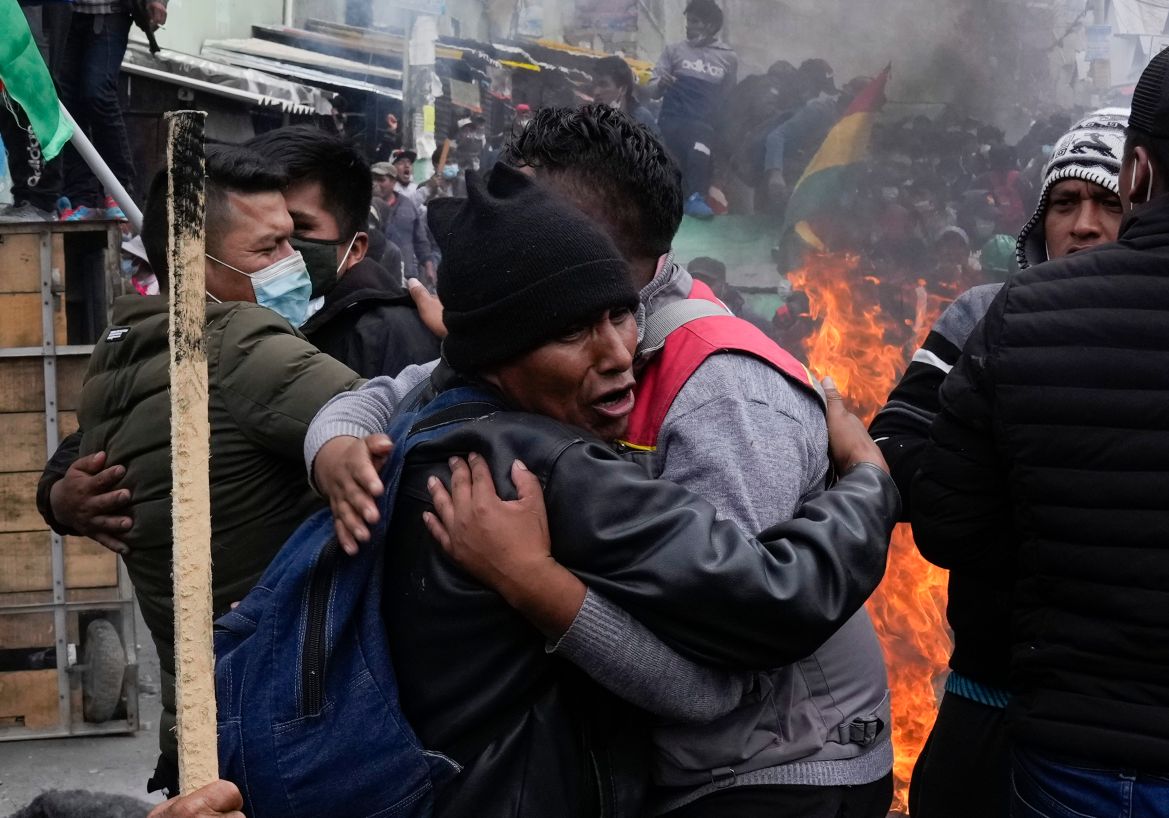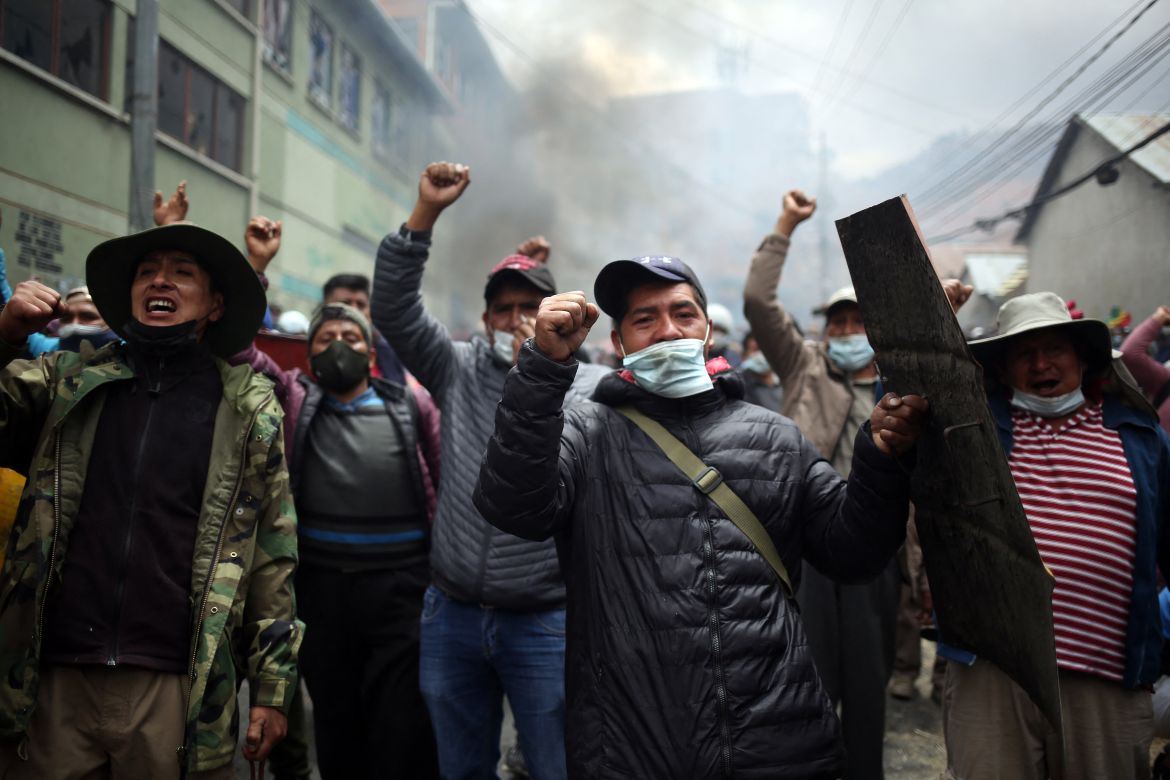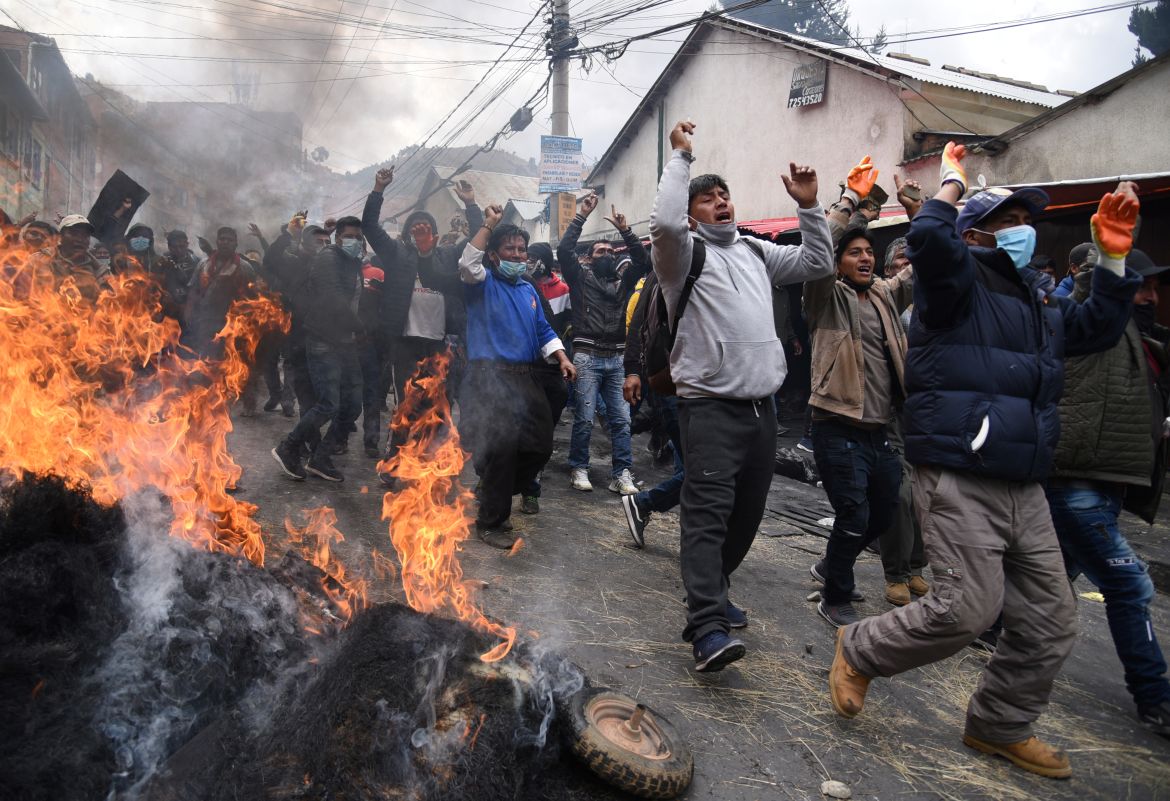In Pictures
Bolivian coca leaf growers storm market after week-long dispute
Bolivian coca farmers seized control of the country’s main coca market after clashes with police in the capital, La Paz.
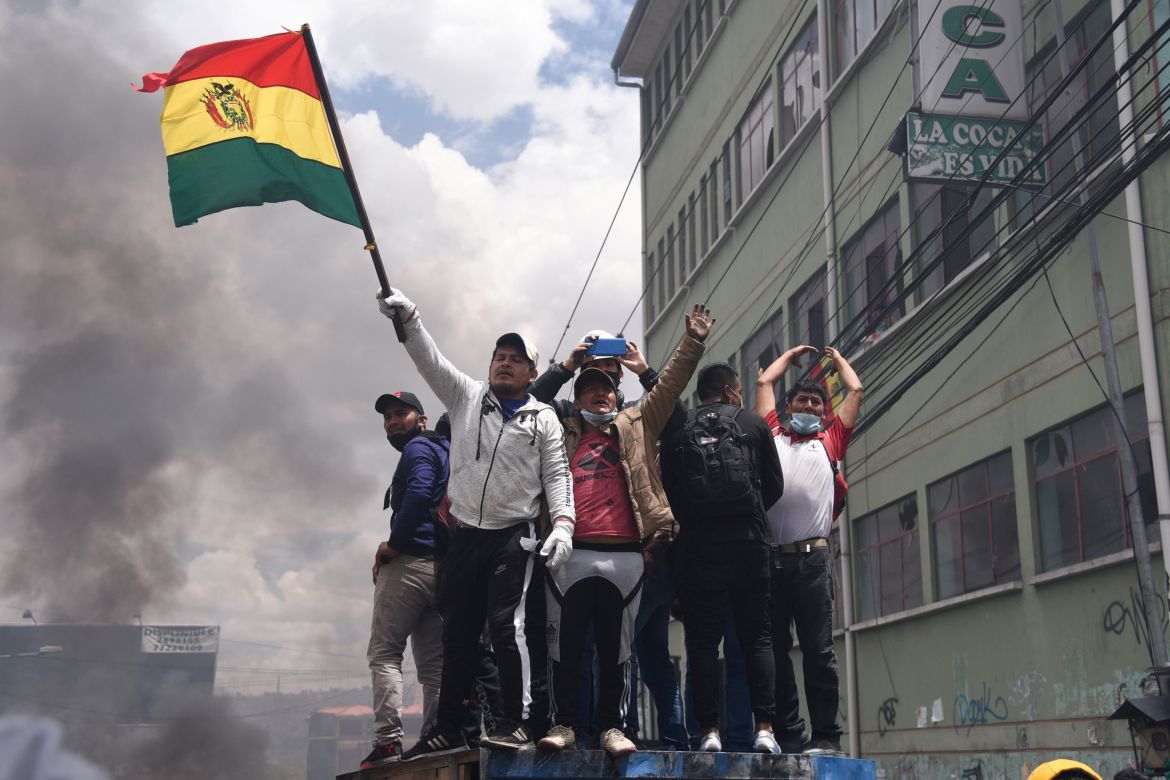
Thousands of Bolivian coca leaf growers stormed the country’s main coca market in La Paz on Monday following violent clashes with security forces.
The Adepcoca market has been the centre of a dispute between two groups of coca growers – one loyal to the government, the other to its opposition – since last week.
Some 90 percent of Bolivia’s legal coca leaf business, worth $173m a year, passes through the Adepcoca market, according to United Nations figures.
The dispute centres around who should control the market.
Last week, the group loyal to and supported by the government removed an opposition figure to take control of the premises.
Armin Lluta claimed he was held hostage for hours and beaten up by the government-backed group before it took control of the market.
Clashes between coca leaf growers and security forces began at midday on Monday.
Dozens of riot police were stationed in front of the market but despite firing off numerous rounds of tear gas, they were forced to retreat by protesters, who threw stones, posts and fireworks at them.
Two protesters and two members of the security forces were injured in the clashes.
“Yungas together, we’ll never be defeated,” chanted the coca leaf growers as they took control of the market.
The Las Yungas region has been a major coca leaf producer since before the region was ruled by the Inca Empire in the 15th century.
Its people have a longstanding gripe with the governing Movement for Socialism (MAS) party that commands much of its support amongst other Indigenous people.
Coca leaf is the main ingredient used to produce cocaine but it has been used for other purposes, such as in religious practices, to make a herbal infusion, or to chew, for hundreds of years.
